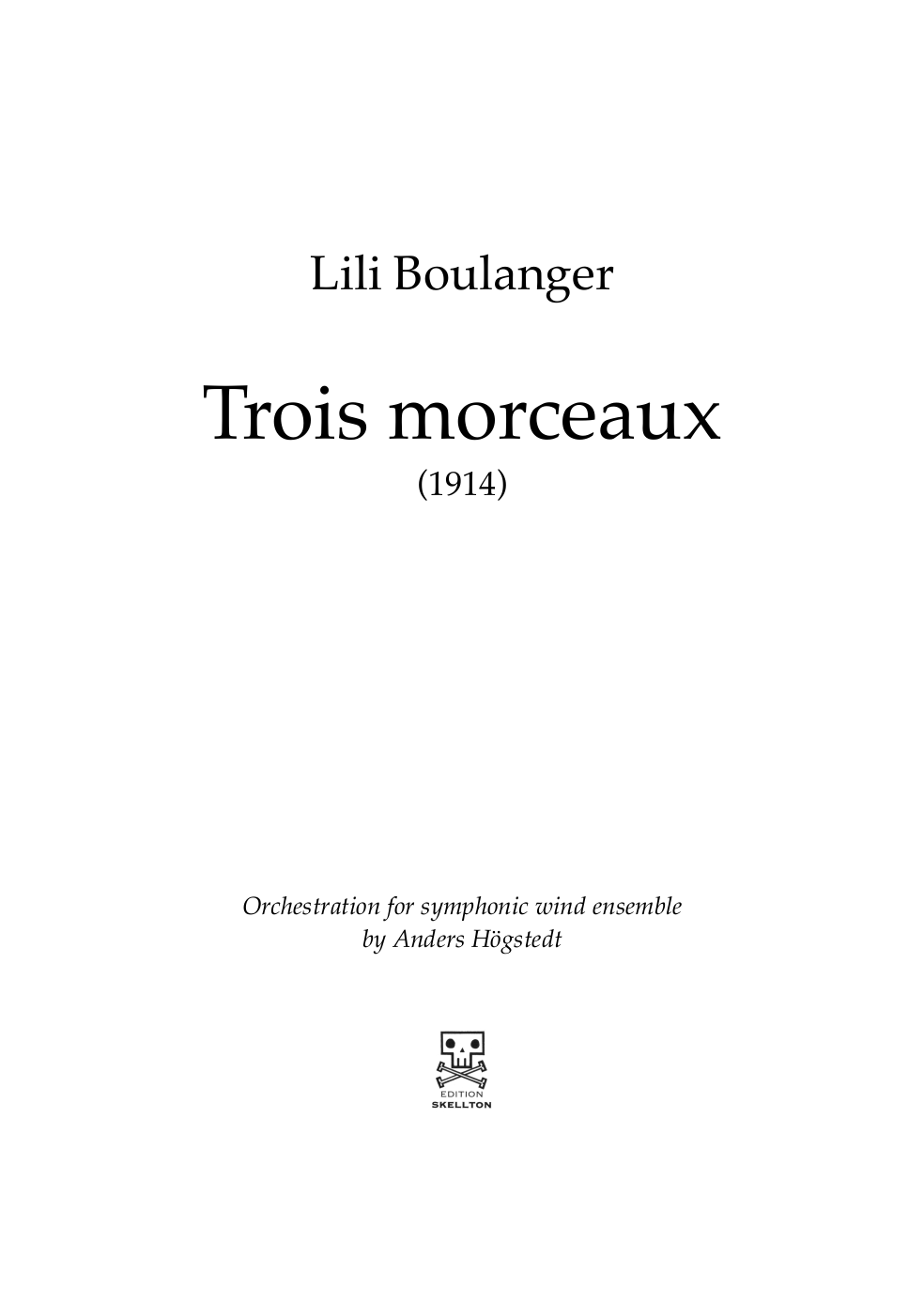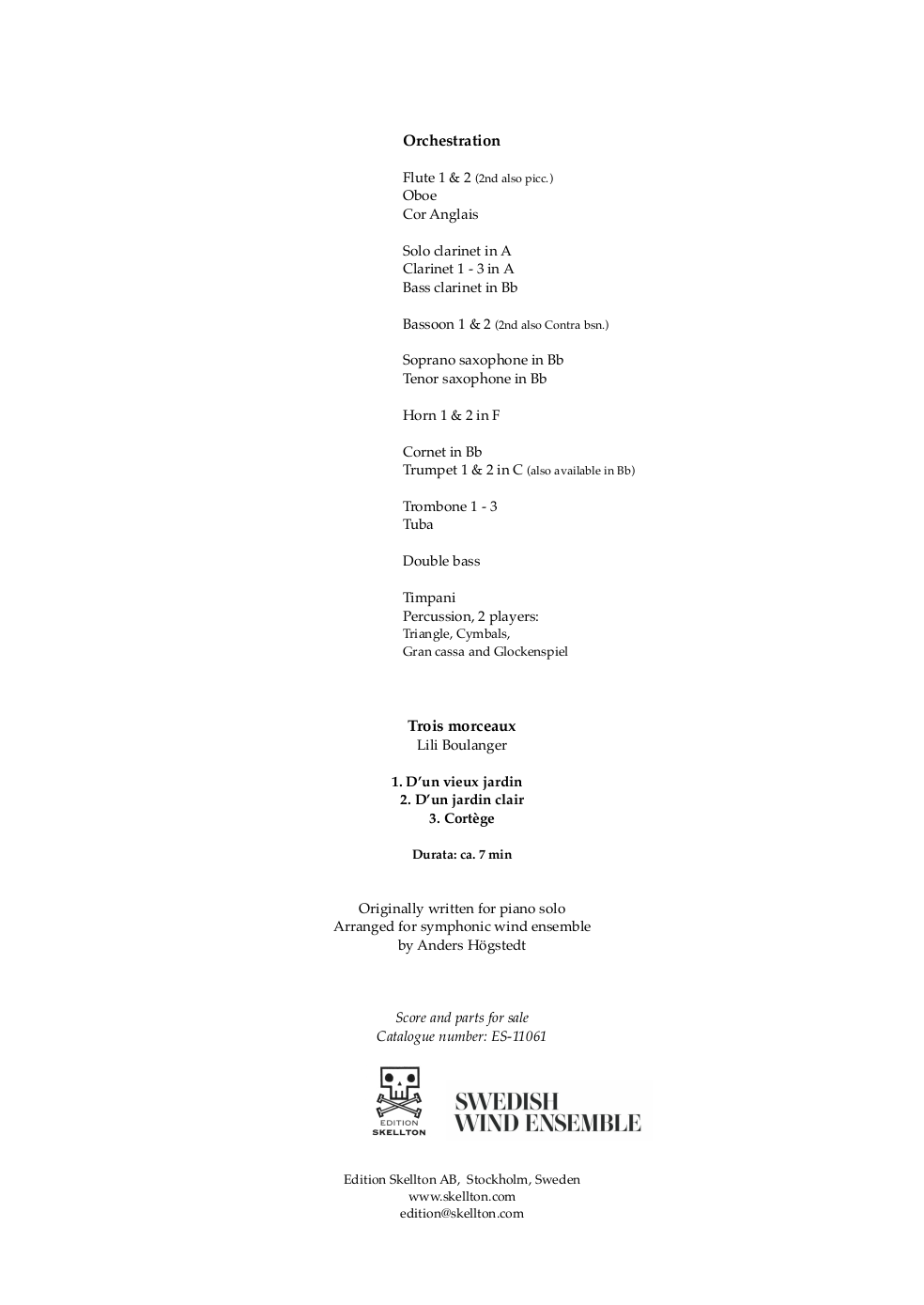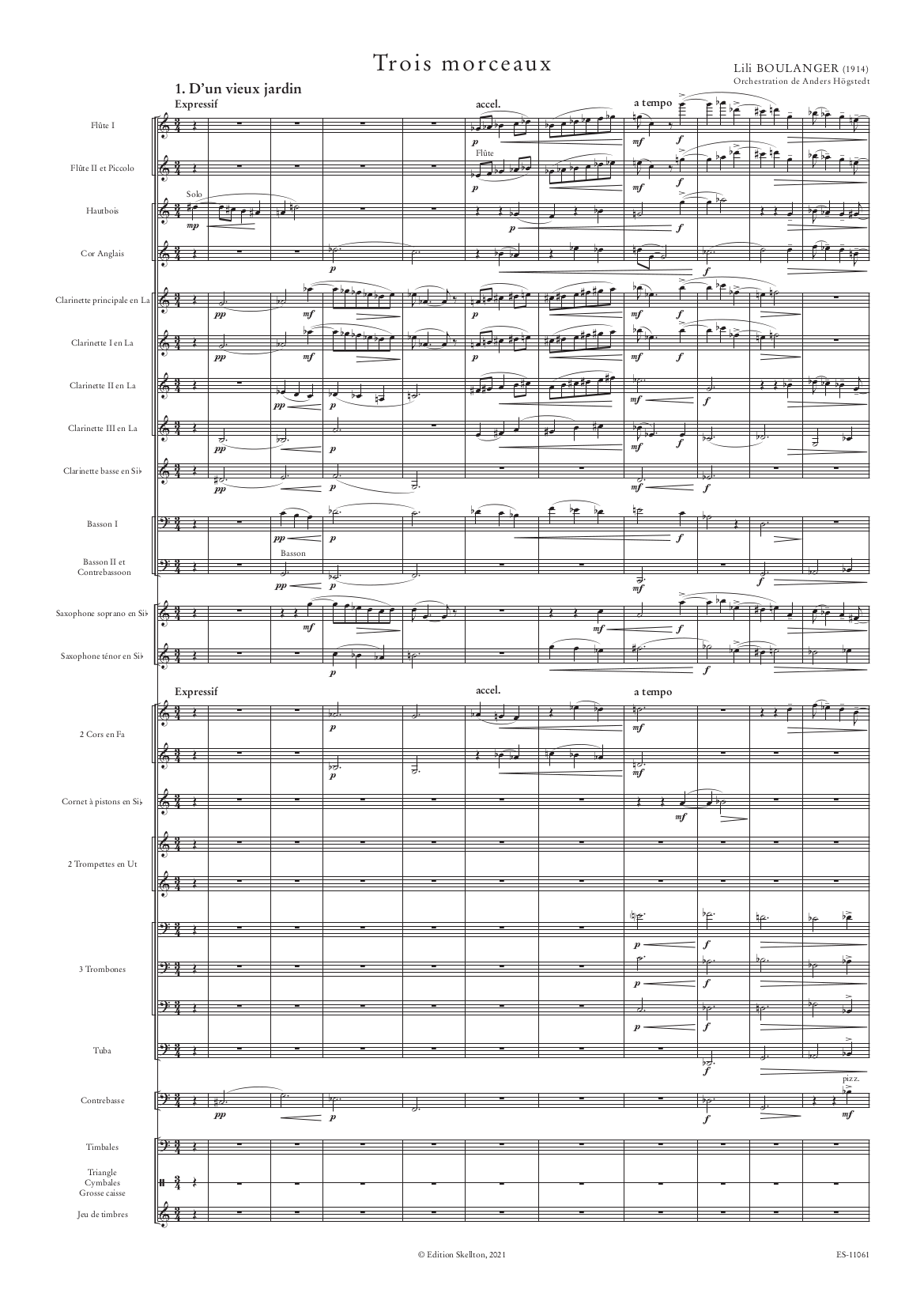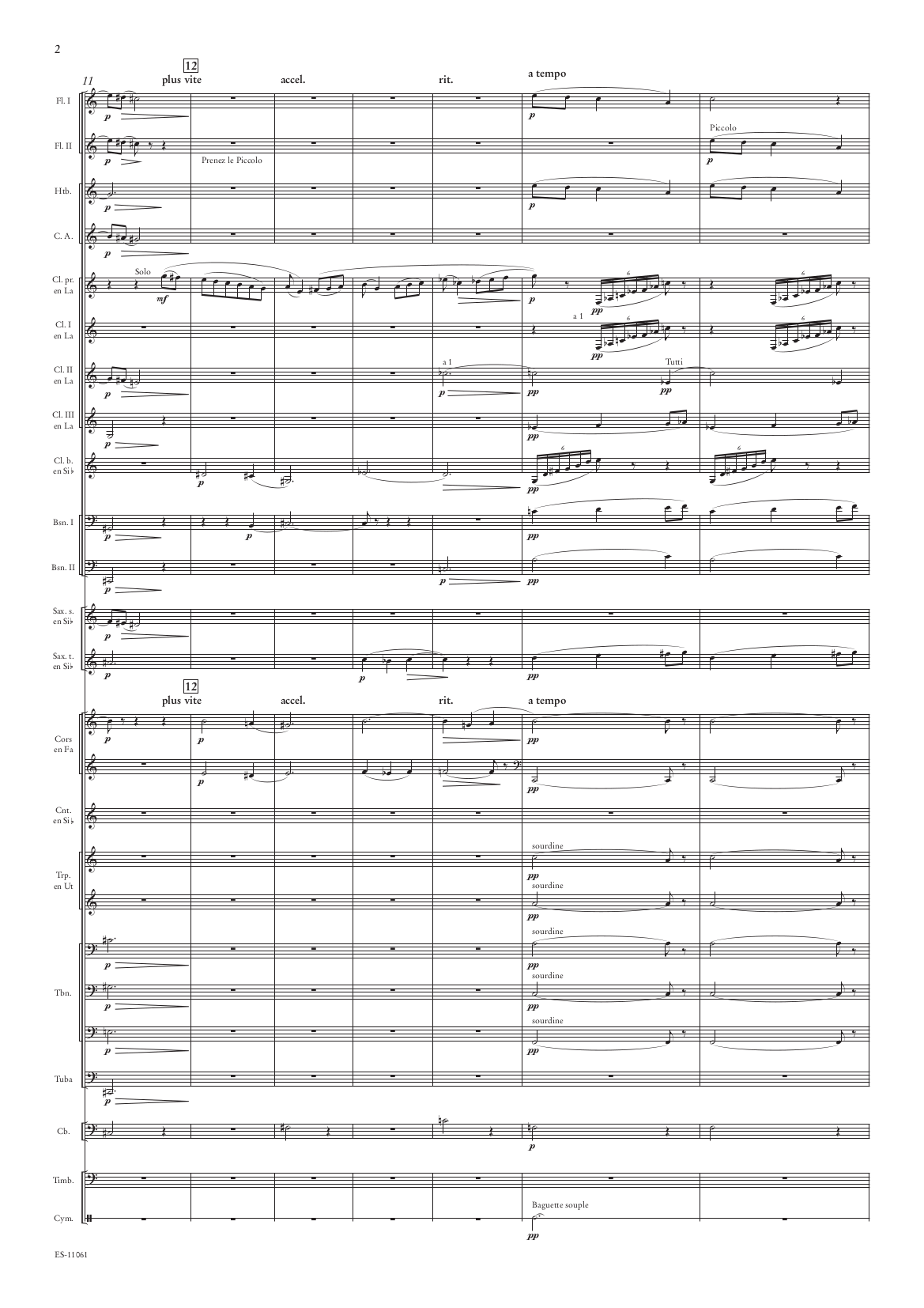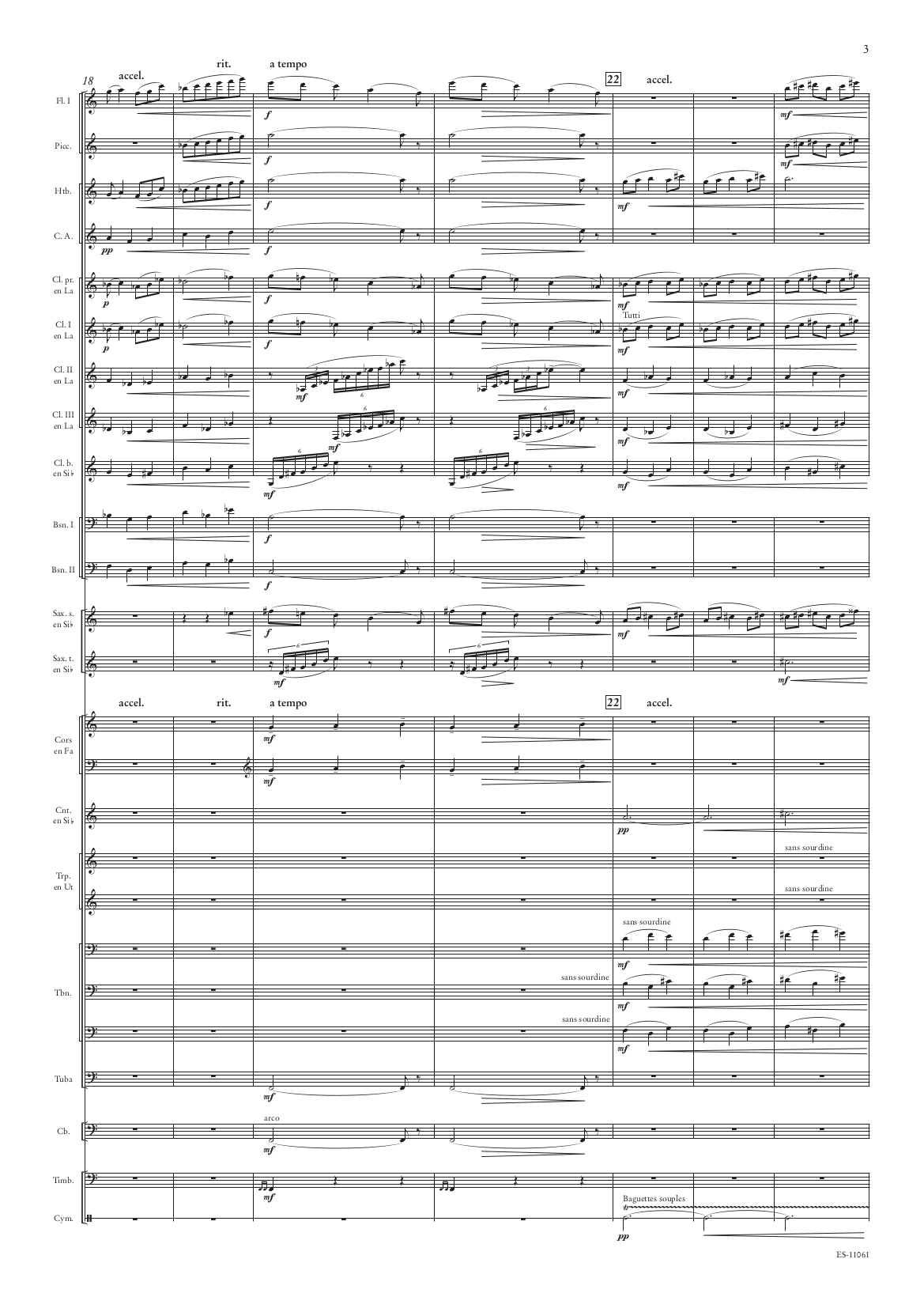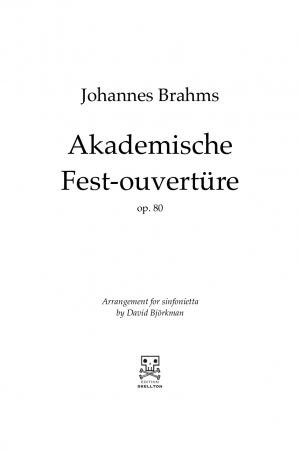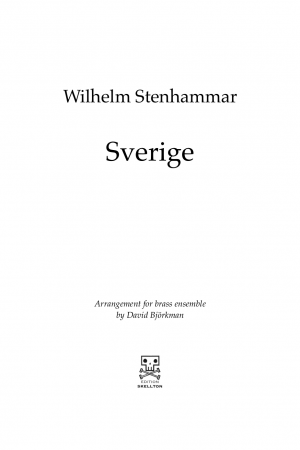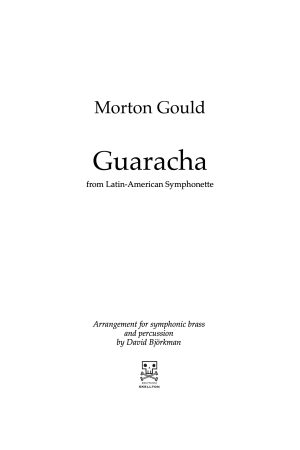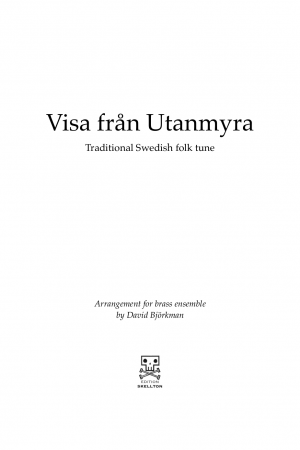In 1913, the name Marie-Juliette Olga ‘Lili’ Boulanger was on everyone’s lips.
A woman had won the Prix de Rome composition prize for the first time ever. The Parisian had barely turned 20, and was younger than all her competitors. Not only was she a woman, the score she had delivered – the cantata Faust et Hélène – was truly astonishing. A great compositional talent was thereby catapulted onto the European cultural scene, accompanied by a famous sister, Nadia Boulanger, who would also make her mark on musical history.
Lilli’s success was enormous. However, there were long, dark shadows in the background. The young composer was seriously ill, and had been for a long time. We now know that she suffered from Crohn’s disease, and died at the age of just 24, leaving her beloved sister Nadia and depriving history of a great composer who would surely have gone on to write many more pieces and whose true potential will never be known. What would French music have been today if she had lived? And what would the history books have told us about women in music if Boulanger had achieved her full genius?
Trois morceaux was written in 1914 during Boulanger’s time at the Villa Medici, a stay that was part of the Prix de Rome prize she had won the year before. Here, we encounter a more impressionistic Boulanger, where the relationship with the older composer Claude Debussy becomes apparent.
Högstedt gives the piano work an airy orchestration and a transparent, contem- porary tonal treatment, once again confirming his mastery of instrumentation for woodwind.
About the 2021 Swedish Wind Ensemble recording project and collaboration between arranger the Swedish Wind Ensemble, Anders Högstedt and Edition Skellton:
“The Swedish Wind Ensemble recorded these works in the same year that Sweden marked the centenary of women’s voting rights. The recording took place at the Musikaliska concert hall in the heart of Stockholm. The Royal Swedish Academy of Music has convened here for a number of musical and historical events over the years, including the presentation of the first Nobel Prize in 1901. The venue also
saw the first Swedish performance of Helena Munktell’s work Breaking Waves, during the Academy’s formal gathering. She, Elfrida Andrée and Clara Schumann were all members of the Academy. Today, Musikaliska is the home of the Swedish Wind Ensemble, and an important arena for acoustic music.
All the works were specially arranged for the Swedish Wind Ensemble by it’s permanent arranger, Anders Högstedt. The pieces were originally written for a symphony orchestra or piano. But is it appropriate to record music adapted for an ensemble, rather than performing it in its original format? The Swedish Wind Ensemble certainly believes so, with its tradition of bringing music closer to the
people. Today, the Swedish Wind Ensemble continues the tradition of bringing live music closer to the people, and in the anniversary year of universal suffrage it felt natural to showcase compositions by both Swedish and international women. Ever since its ‘Skip the Full Beard’ initiative in 2010, the orchestra has developed, arranged and performed a number of works written by women.
With this recording, we want to share some of our work over the years. In this way, we hope that wind ensembles will be able to perform the repertoire we have arranged, thereby giving even more audiences the opportunity to enjoy this music.”
Printed score: 300 sek (B4 format, 23 pages. Coil bound, frosted plastic front, hardback)
Score in PDF: 240 sek (B4 format, 23 pages)
To add parts to your order, please click here:
Printed parts: à 50 kr (B4 format. 3-4 pages, Munken paper)
Parts in PDF: à 40 kr (B4-format. 3-4 pages.)
In the printed material, you get 26 parts = 26 x 50 sek : 1.300 sek
Buying the material in pdf, you get 26 parts = 26 x 40 sek : 1.040 sek
Please contact us to pre-adjust or change the order.

